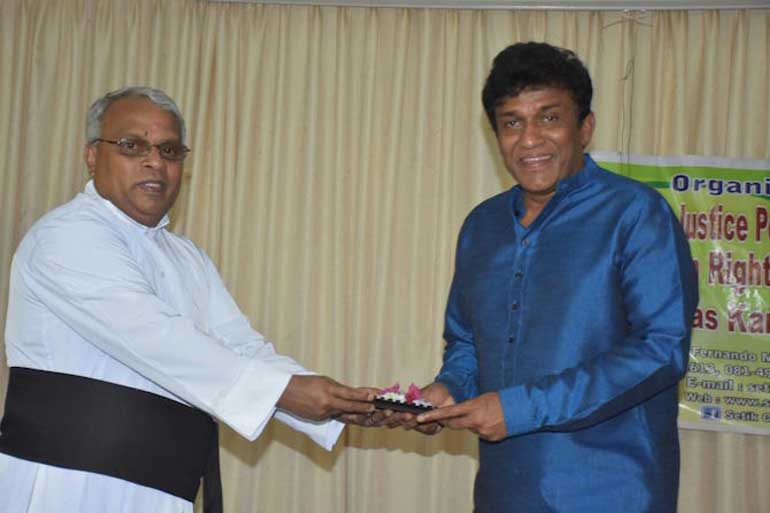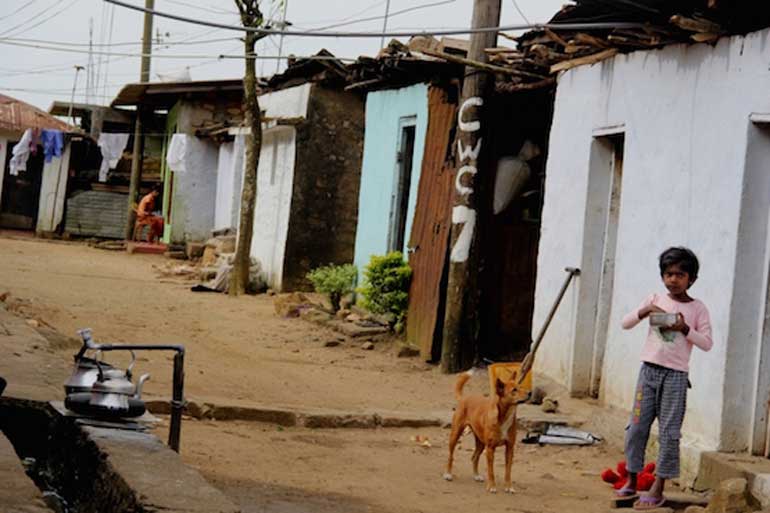Monday Feb 16, 2026
Monday Feb 16, 2026
Monday, 18 April 2016 00:00 - - {{hitsCtrl.values.hits}}

Caritas Kandy Director Father Desmond Perera hands details about the plight of tea workers to Minister of National Dialogue Mano Ganesan – Pic by Caritas

A file image of housing for workers on a tea estate in Sri Lanka. Tea is one of the country’s major sources of wealth but tea workers suffer from both low income and inadequate housing – Pic by ucanews.com
Caritas has urged the Sri Lankan Government to increase the wages and housing rights for marginalised tea workers whose ancestors were brought from India by the British.
Tea production is one of the country’s major sources of wealth but tea workers suffer from low income and inadequate housing.
“Tea workers don’t have basic rights or facilities. Currently they are paid a daily wage of Rs. 450 ($ 3.20),” said Father Desmond Perera, Director of Caritas Kandy, known locally as the Social, Economic, Training Institute of Kandy.
“The housing for workers does not even meet preliminary needs; they still live in rows of workers’ houses located in the middle of the plantation,” said Father Perera, who organised April 11 talks between National Dialogue Minister Mano Ganesan and 325 estate community leaders.
“We urge the Government to give at least Rs. 1,000 as a daily wage,” said the priest. “Young people are leaving tea estates for better jobs and they do not want follow their elders’ footsteps because there is a lack of job security, no health care, low wages and malnutrition,” he said.
There are an estimated 500,000 plantation workers who live in houses on the tea estates where they work.
“Twelve families live in a small one-room house and there are no land deeds,” said A. Dharshi who lives and works at an estate in Kandy.
She said that 12 families were given running water facilities by Caritas.
Historically cheap labour
Tea workers are mostly Tamil who descend from workers brought to Sri Lanka from India by the British during the 19th century to provide cheap labour on the estates.
Aruna Santha Nonis, a monitoring and evaluation officer with Caritas, said that because their ancestors were brought over by the English there remains a big question mark regarding their citizenship status.
“They do not enjoy the rights and privileges that are enjoyed by the people living outside of plantation areas in the country,” said Nonis.
“The people living in plantation areas are given the identity of ‘Indian Tamil,’ which causes many difficulties to their children when they have to obtain certain facilities and services from the Government,” he said.